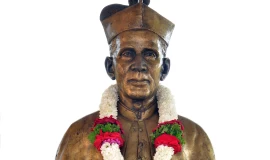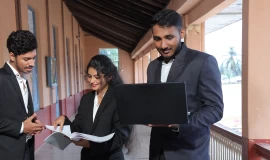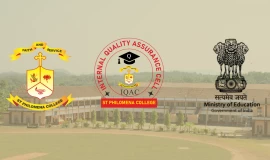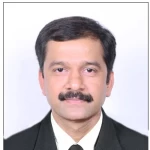Library Collections
The library collection includes Textbooks, General books. Reference books, Rare books, Literature Books, Personality Development & Value education books, periodicals, bound volumes of journals, newspapers and educational CD/DVD’s.
Membership:
Membership of library is open to the Students and Staff of the College. The Library provides to each student One Membership Card for Reference and Two Borrowers Cards to borrow the books. The cards will have to be returned to the Library at the end of the academic year before collecting Admission Tickets for the University Examination. The Cards are not transferable. The Teaching staffs are provided with 1 reference Card and 10 Borrowers Card and Non-Teaching staff with 2 Borrowers Card. Library facility is extended for reference to Alumni, Parents and the public.
Duration of Borrowings:
A book can be borrowed for a period of 15 days by the students. It can be renewed for 15 more days provided that book is not demanded by any other member. If the book is not returned within the due date, a fine of Rs.3.00 per day will be collected as overdue charge. The Staff should return the books before the end of the academic year.
Library Automation:
The Library is fully Automated using web based Library Management Software “e Lib iNext”. Barcode technology is used for easy transaction. OPAC facility is available which allows the readers to search the books by Author, Title, Publisher, Accession Number, subject, Class No., Keywords etc and helps them to know the status of availability in the library and reserve them if they are lent out. Orbit Scanners had been installed in entry point of the library to track students and staffs check in check out to the library. .
Internet & Wifi Facility:
The library subscribes to BSNL optical internet connection to provide Free internet services to the staff and students.
Journal Archives:
The library maintains a good collection of journals and magazine archives in bound volumes. This includes,
Current science – from 1984
Resonance- from 1997
Indian Journal of Marketing- from 1975
Economic & political Weekly – from 1998
Southern economist – from 1980
Social Action – from 1980
New Frontiers in Education – from 1972
Journal of Chemical Sciences
Journal of Biosciences
The library maintains a good collection of journals and magazine archives in bound volumes.
Remote Access:
The Library is using eLib iNxt software WEB- OPAC, which provides all the knowledge available through the library on any device from anywhere.












































